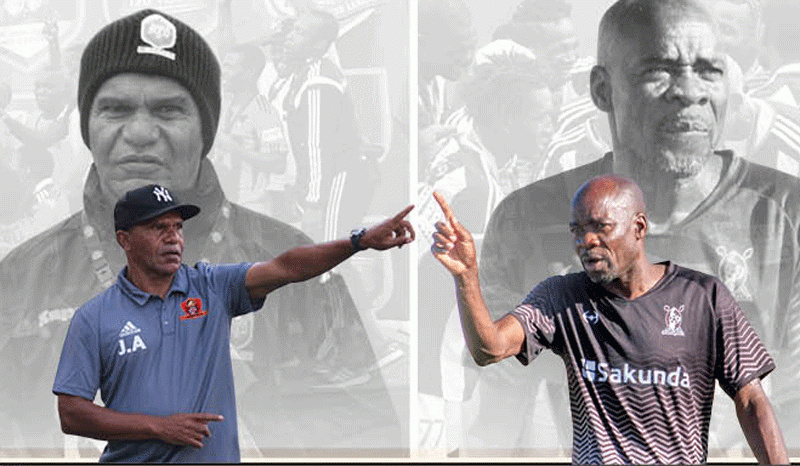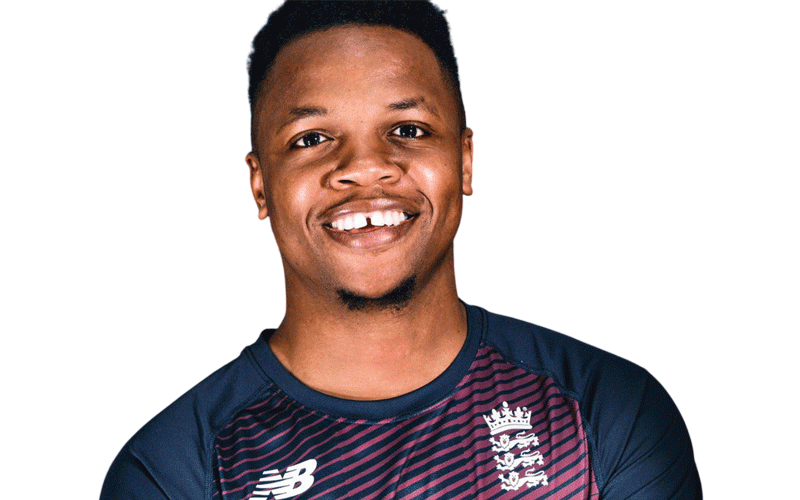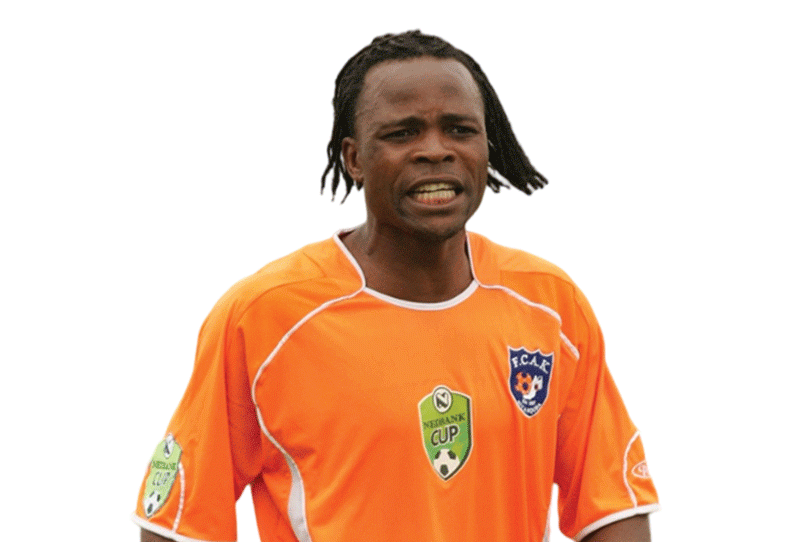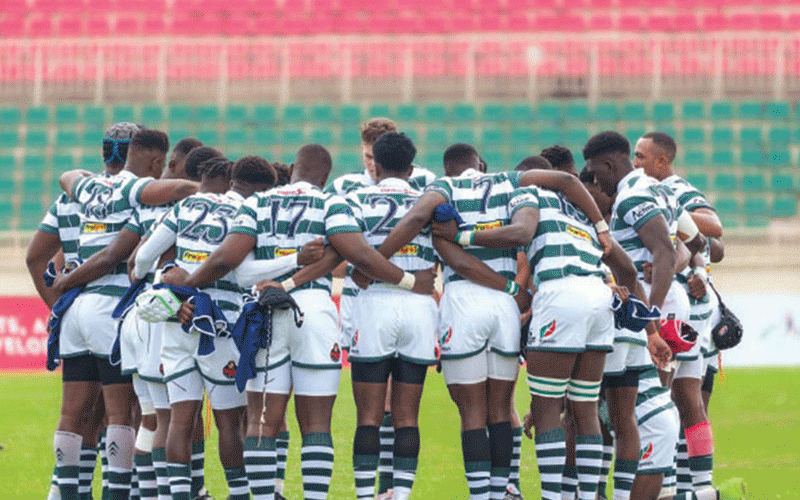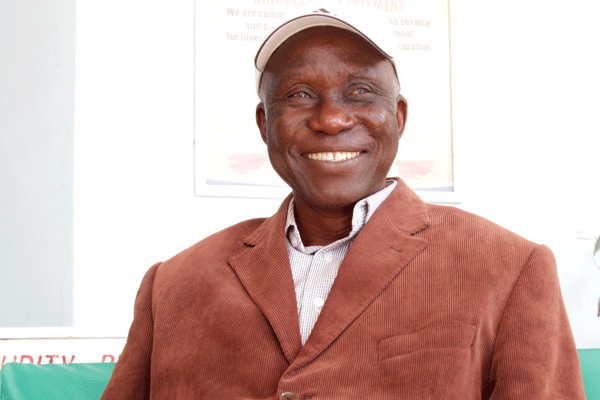
That both British football legend Sir Stanley Matthews, affectionately known as the wizard of the dribble and Zimbabwe football icon July “Jujuju” Sharara wore the same jersey number, played in the same position and are famed for their dribbling wizardry, was not a mere coincidence.
yesteryear profile with MUNYARADZI MADZOKERE

Sharara, a former Metal Box, Chibuku and Dynamos great, idolised Matthews, to the extent that he decided early on in his career to emulate his hero.
After all, his raw pace and natural skill permitted him to carve his own legacy in the art of dribbling, locally.
“Back in the day, we would watch World Cup games on projectors and I would watch [Stanley] Matthews. He is the one I tried to emulate, especially the way he would go straight at the defender and dribble past him,” Sharara said in an interview with Standardsport last week.
“I was very good at dribbling during my time such that I would leave some defenders injured or bruised all over. I had the advantage of working under British coaches Allen Davey at Metal Box and Jack Meagher at Chibuku.
“These coaches were good at identifying the strengths and weaknesses of a player, so that they could work on weaknesses and motivate them in their strengths. That’s how I got to be a great player. I flourished, especially under Meagher,” the now 64-year-old former winger added.
Named July simply because he was born in that month, Sharara was part of the Chibuku team that played in a four-team tournament that involved top South African sides Kaizer Chiefs and Orlando Pirates in the late 1970s.
- Chamisa under fire over US$120K donation
- Mavhunga puts DeMbare into Chibuku quarterfinals
- Pension funds bet on Cabora Bassa oilfields
- Councils defy govt fire tender directive
Keep Reading
He remembers vividly how he roasted former South Africa coach Ephraim Shakes Mashaba, then a defender with Pirates, to score the consolation goal in a 2-1 defeat.
“I remember a tournament we played involving Orlando Pirates, Kaizer Chiefs and Dynamos in 1976. We went to Orlando Stadium and I was playing against Shakes Mashaba.
“We lost 2-1 and I scored the one goal. I beat him at the corner flag as he made a sliding tackle and he skated out of the ground, wincing and showing his gums, and that’s how I came to know that Mashaba had missing teeth,” Sharara recalled in open-excitement.
“The following morning, the papers were talking about that incident. I scored past Partson Banda who was a top goalkeeper from Malawi, at the near post. When the match ended, the Pirates supporters were chanting my name and I went to salute them, some even gave me money,” he added.
During his football career, Sharara inspired the defunct Metal Box, then coached by Davey, to a first and only league title in 1973.
It was a team that boasted of the likes of Simon Mudzudzu, Mike Chidzero, John Humba, Shadreck Kayeta, Sunday (Marimo) Chidzambwa and Chita Antonio among others.
They would also go on to win the Castle Cup with Chibuku in 1976 before four consecutive league titles between 1980 and 1983. After that he left to join the police.
An immensely gifted youngster in the late 1960s, growing up in Chinhoyi, Sharara at one point found himself playing football for Feoch Mine, Mutorashanga in 1969.
He, however, didn’t stay there long, packing his bag for the bright lights of Harare, then Salisbury.
It was a friend, Mudzudzu, who urged him to go to Metal Box where his elite football story started.
“I remember the trials we had there in 1970 and coach Davey needed just 25 players from 60 who turned up. I made the grade and I became an instant hit there with some crucial goals and assists. We won the championship in 1973,” he said.
A change in leadership saw Metal Box being dissolved and Sharara claims he was subsequently sold to Chibuku for $1 600 in 1974.
“Those days the value of an Alpha Romeo, the hottest car then, was $1 600 so I always used to brag to my team mates that I was worth an Alpha Romeo,” he chuckled.
At Chibuku, which later became Black Aces, he linked up with the likes of David Muchineripi, Daniel Chikanda, Billy Sherman, Byron Emmanuel, Victor Mapanda, Peter Manyara and Chidzambwa.
“This is where I think I flourished most under Meagher who encouraged me to dribble, and would spend more time teaching me dribbling skills,” Sharara said.
As the years ticked towards 1980, five-time Soccer-Star-of-the-Year George “Mastermind” Shaya was ageing and coach Shepard Murape was desperate to find a replacement.
Murape brought Sharara to DeMbare as a direct replacement for Shaya and the gamble paid off as the Harare giants wrestled the title back from bitter rivals CAPS United.
Three more titles would follow before Sharara left to join the Zimbabwe Republic Police in 1984, the same year Dynamos lost the title to Black Rhinos.
And it was the police that barred him from turning out for Dynamos.
“In 1983 I joined the police force but continued to play for DeMbare. They travelled for Champions league matches and my bosses at police were not happy and barred me from turning out for a civilian team. An agreement had to be reached for me to finish the season and I revived the Dynamos season which was faltering in my absence,” he said.
He also was part of the Warriors side that represented the country at independence.
Sharara was aptly nicknamed Jujuju after Highlander dribbling wizard Majuta Mpofu, although it was Meagher who started referring to him as “Juju” as he urged him to dribble in a game situation.
Sharara’s coaching career, which he started after hanging his boots, was not as glorious as his football achievements. He coached Support Unit, Black Mambas, Mazowe Mine, Manzini Wanderers (Swaziland), Mutare United, Sporting Lions, Orapa Wanderers and assisted at Dynamos.
Surprisingly, despite all his skill and trickery, Sharara was never chosen among the best footballers in a calendar season, but that doesn’t worry him.
“I am not worried about that because I always felt that those selections were always biased. But football runs in my blood and the people who saw me play can testify that I am one of the best wingers from my generation,” he said.
Sharara currently sells sportswear and equipment for a living, but he still has a football dream – to dedicate his life to talent identification in Zimbabwe football.

